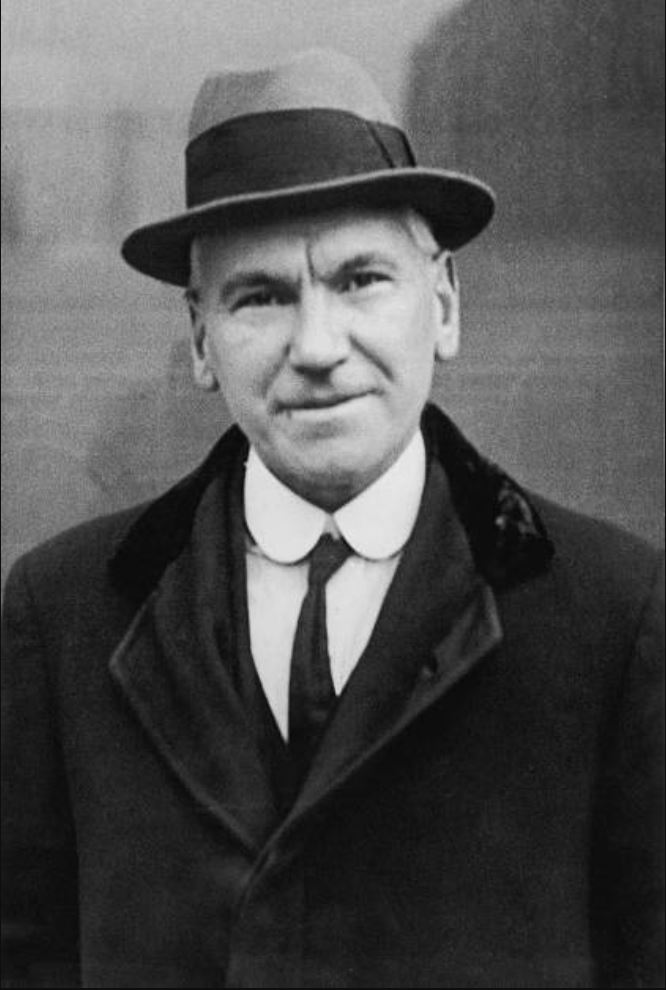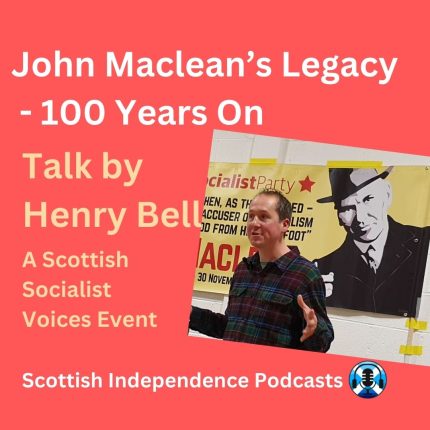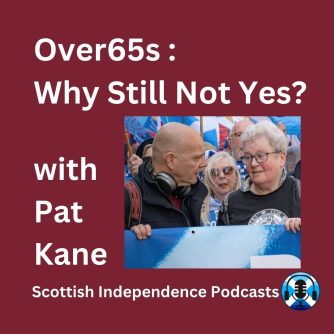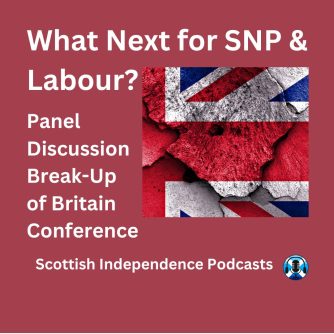John Maclean’s Legacy : 100 Years On. The 3rd Annual Jim McVicar Memorial Lecture.
Henry Bell, author of the biography “John Maclean – Hero of Red Clydeside“, examines some of the life, times and core principles that John Maclean represented. Do these still relate to the world today – a century after Maclean’s tragic and untimely death?

Key chapters:
00:00:44 Welcome and opening remarks by Richie Venton
00:12:03 Lecture delivered by Henry Bell
01:07:27 Closing remarks by Richie Venton
The Red Clydesider
This working class lad from a pretty poor family was able to study ??? at Glasgow University with the help of a Carnegie Scholarship. He walked the five miles or so to get there from his home in Pollockshaws over the river and up to Gilmorehill. In his talk, Henry takes us along that route : past the estate wall and grounds of Pollock House, down through Govan, across the river bustling with ships and tradesmen, and then westward into the newly affluent areas around the University.
He became a school teacher in Glasgow. But was always also a political activist. Notable for his outspoken opposition to World War I, in 1915 he was arrested under the Defence of the Realm Act and lost of his teaching post, after which he became a full-time Marxist lecturer and organiser. Then in April 1916 he was arrested for sedition, and his 75-minute speech from the dock became a celebrated text for Scottish left-wingers. He was sentenced to five years’ penal servitude, but was released after the 1918 November armistice.
Maclean believed that Scottish workers were especially fitted to lead the revolution. But his launch of a Scottish Workers Republican Party and a Scottish Communist Party were largely unsuccessful. Although he had been appointed Bolshevik representative in Scotland by Lenin, he was not in harmony with the Communist Party of Great Britain, even though it had absorbed the British Socialist Party, to which he had belonged.
In captivity, Maclean had been on hunger strike, and prolonged force-feeding had permanently affected his health. In 1923, he collapsed during a speech and died of pneumonia, aged forty-four.

Hosted by the Scottish Socialist Party, this is the 3rd Annual Jim McVicar Memorial Lecture. Find more info and publications from their website.. Many thanks to the Scottish Socialist Party for allowing us to record and share their event. It was only a month or so ago that we spoke to Colin Fox about SSP’s ideas for routes to Scottish independence.
Author Henry Bell‘s book “John Maclean – Hero of Red Clydeside” is available from Pluto Press.
We’ve written a bit more about John Maclean in our blog. It’s got details of a campaign to raise funds for a life-size statue of him in Glasgow City centre.
Best ways to support Scottish Independence Podcasts …
Subscribe to our podcast feeds. Our team produces a NEW podcast episode every Friday. Search for Scottish Independence Podcasts wherever you get your podcasts: Apple, Google, Podbean, Amazon and many more. If you’ve enjoyed a podcast please share it and tag us in.
Subscribe to our Youtube channel @IndyPodExtra for more of our video footage and clips
Follow us on Social Media. It all helps to extend our reach and be visible to more people. We’re on Facebook, Twitter, Mastodon, TikTok and Instagram. Just click on the buttons and join our on-line community.




I have tried to contact Henry Bell to point out his errors on pages 8 and 9. John Maclean’s father was not from Mull and neither was he a Gaelic speaker. He was born and bred in Bo’ness as was John’s grandfather. His great grandfather lived, worked and died in Bo’ness.